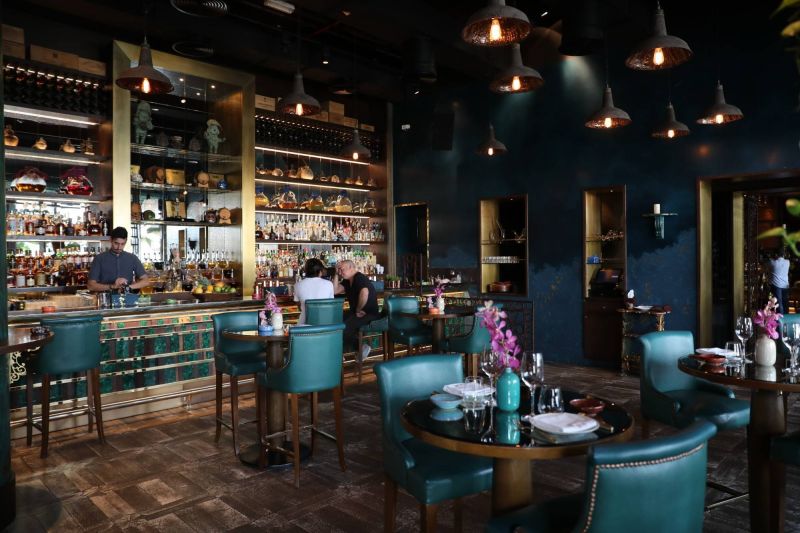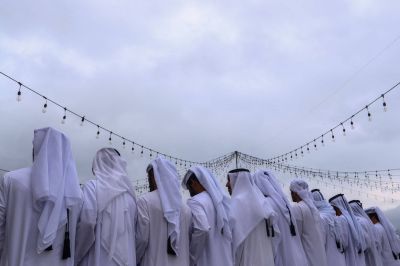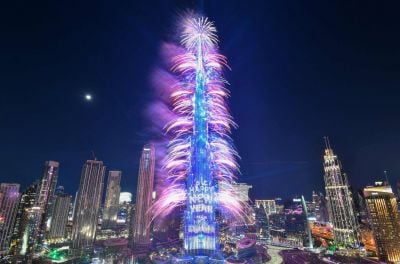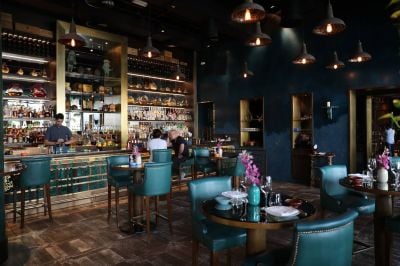
A restaurant in Dubai serving alcoholic beverages. (Credit: Karim Sahib/AFP Archives)
On the first day of the new year, one of Dubai's two main liquor suppliers — Maritime and Mercantile International (MMI) — announced via its Instagram account: “Buying your favorite drinks just got easier and cheaper!”
Starting Jan. 1, the economic capital of the United Arab Emirates introduced dramatic new measures to attract foreigners, namely the scrapping of its hefty 30 percent tax on alcohol.
New in 2023
On January 1, Dubai repealed a 30 percent municipal tax imposed on alcoholic beverages. Introduced in 2018, a 5 percent value-added tax (VAT) will still apply.
For non-Muslim residents over 21 years of age, individual licenses to consume, transport, and store alcohol at home that were previously purchased annually for approximately $73 are now free.
According to industry sources familiar with the matter, quoted by the Financial Times, these measures are to be tested over a one-year period before being adjusted, if necessary.
These decisions only apply to the emirate of Dubai.
The context
The arrival of Russian oligarchs since the invasion of Ukraine, combined with global inflation, has fueled even further inflation and increased the cost of living. Even if the tax is not fully passed on, the measures will help lower the price of alcohol consumers.
Rules regarding alcohol consumption were eased in Abu Dhabi back in 2018 when the sale of alcohol became permissible on days leading up to important religious holidays.
Alcohol consumption was then decriminalized at the end of 2020 in all of the UAE, except Sharjah, where alcohol remains prohibited.
There is still zero tolerance for drinking and driving. Drinking outside licensed establishments is punishable by law, as is being under inebriated in a public place.
In an effort to diversify its hydrocarbon-based national economy, Abu Dhabi is seeking to attract tourists, but more importantly, foreign investment and skilled workers.
In January 2022, the UAE federation shifted its work week to Monday- Friday noon, to bring it in line with the world's major financial and trading centers.
The emirate capital of Abu Dhabi introduced civil marriage for non-Muslims last year as an incentive for its residents to settle down long-term.
One of the world's largest casinos is due to open in the emirate of Ras al-Khaimah in 2026, although gambling has so far been prohibited by Islamic law in the Gulf states. Work is underway to develop legislation to provide legal loopholes.
The stakes
As a commercial and financial hub, more than 90 percent of Dubai's residents are foreigners. The city hopes to retain these long-term residents to compete with its neighbors.
With its Vision 2030 plan under Mohammad bin Salman, Saudi Arabia is also seeking to attract multinationals operating in the region, as well as foreign workers and tourists.
The kingdom has thus threatened to stop working with companies that have not opened regional offices in the country by 2024.
Qatar hopes to benefit from the World Cup's pulling power to develop the tourism sector, having taken care to show an open-minded image to football fans who visited the emirate for the 2022 tournament.
Alcohol is still prohibited in most Gulf countries. While it is tolerated for foreigners in some hotels within Qatar, it is still prohibited in the Wahhabi kingdom.
However, according to the Wall Street Journal, Riyadh is planning to allow the sale and consumption of alcoholic beverages as early as next year in a beach resort located in the futuristic city of NEOM, still under construction on the Red Sea.
This article was originally published in French in L'Orient-Le Jour. Translation by Sahar Ghoussoub.


